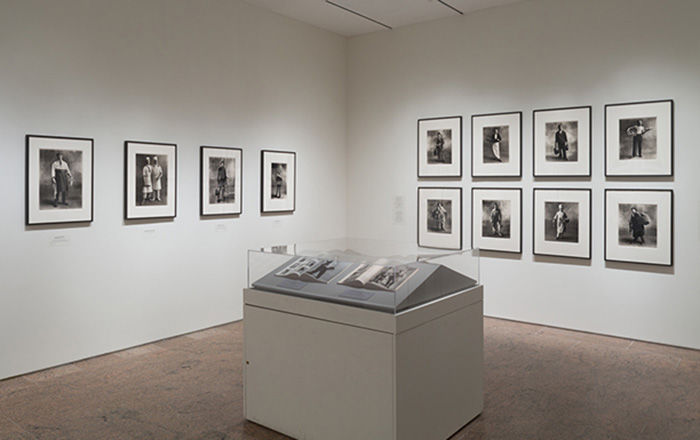[Fotoescultura]
Not on view
Fotoescultura is a Mexican folk art form that flourished from the late 1920s through the early 1980s. Often commissioned by traveling salesmen to honor individuals, commemorate important events, or memorialize the dead, fotoesculturas typically consist of a hand-tinted portrait photograph, trimmed and adhered to a carved mount of the same shape and surrounded by an elaborate wooden frame. Sold primarily in Mexico as well as in Mexican-American communities in Houston and Chicago, fotoesculturas were particularly popular during and after World War II, when families were anxious to memorialize absent sons, brothers, and fathers. The vivid presence of this well-preserved portrait of a young man beautifully exemplifies the personal and devotional nature of the form.
